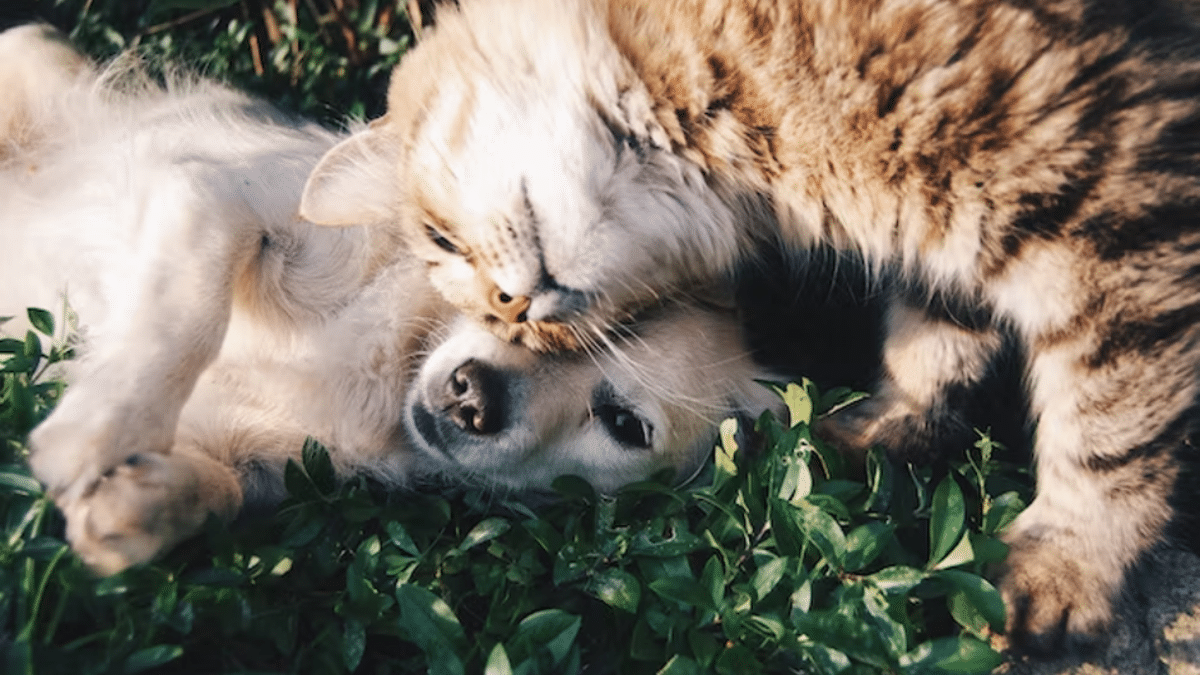Studies have shown that almost half of Australian households keep at least one dog. Furthermore, Australians with larger properties may even have a wide array of pets who live both indoors and outdoors.
Any pet owner knows that taking care of an animal requires a lot of extensive care. This includes arranging pet transportation when they need to be relocated as well as helping them effectively deal with any noise phobias.
Keep reading if you need help on these topics!
Contents
Top Ways to Reduce Noise Stress in Animals
It’s not uncommon for animals—both wild and domesticated—to experience storm phobia. Essentially this refers to an animal becoming distressed by the noise of thunder as well as the stimulus of lightning.
Since pets can sense oncoming storms before humans, it’s not uncommon for them to become agitated well before the bad weather appears. For pet owners, the storm season between April and November can be stressful as it remains an ongoing challenge to keep their pets calm and safe.
Our experts have compiled a few handy tips for pet owners to help their animals through their noise phobia. Whether you’re a new pet owner or have had fur babies for many years, you’ll find our tips useful!
1. Microchip Your Pets
Dogs and cats that get spooked by loud noises often run away. In some cases, these pets can run long distances and can get lost. To ensure that your pet can be returned to you, invest in microchipping them. It’s also important to keep your contact details up to date.
If your budget allows, consider adding a collar with a tag that has your pet’s name and your contact number on it. This will make it easy for good samaritans to return your pet to you.
2. Create a Safe Space for Your Animals
Creating a safe space for your fur kids is a crucial step in helping them. Whether your pets live indoors or outside, you should always create a shelter or space where they can hide when they feel distressed.
If they live outside, they’ll need a kennel that stays dry during the storm. Alternatively, consider letting them come indoors until the bad weather passes. If you don’t let your animals in the house, create a space for them on the verandah or even just in the kitchen.
3. Walk Dogs Early
If the weatherman has suggested that the weather may be acting up later in the day, we recommend taking your dogs for their daily walk earlier than usual. This will prevent them from getting startled during the walk. This is also a good tip to keep in mind if you live in an area where fireworks are common during holidays or special occasions. Make sure you’re home by the time people start setting off those loud fireworks your dog will hate.
Keep in mind that startled dogs will run off and may either get lost or be in danger of getting run over by passing traffic. In instances where dogs run away and end up out of their neighbourhoods, you can use dog transport to bring them home. They know exactly how to handle stressed animals.
4. Keep Windows, Blinds or Curtains Closed
Pets who live indoors will still get scared by thunder, especially in areas subject to harsh weather. When the weather is acting up, keep the windows, curtains and blinds closed in the room where you and your pets are sitting.
Closed windows and curtains will muffle the sound as well as shut out lightning flashes. Ensure that your pets have a few blankets and toys in the area where they hide from the storm—this warmth and familiarity will help calm them down.
5. Turn Up the TV
Another easy way to mask the storm and even fireworks sounds is to switch on the TV or put on some calming music. Be sure to turn the TV to a program you watch often so that the sounds are familiar to your pets. They’re more likely to remain calm if they feel the atmosphere is close to normal.
6. Don’t Forget the Bunnies
If you have a rabbit hutch, it’s important to note that these animals are also highly sensitive to loud noises. Fireworks and storm season can be very stressful for them.
Our experts suggest that you move the hutch into the house, garden shed or even garage. Doing this will create a solid barrier between them and the noise. It’s also a good idea to give them extra bedding since they burrow when they’re afraid. You can also add an old box to the hutch to give them additional shelter.
7. Where Possible, Stay at Home
Cats and dogs who live indoors can become very destructive if they are left alone. This can result in torn curtains and couches and knocked-over décor. Avoid this by keeping someone at home to talk to and soothe your fur kids during the storm.
Final Thoughts
The last thing you want is for your pets to hurt themselves or run away when they’re exposed to loud storms or fireworks sounds. Go the extra mile to keep your pets safe and stress-free during these times. You can also speak to your vet for sedatives as a last resort to keep your pets safe!

